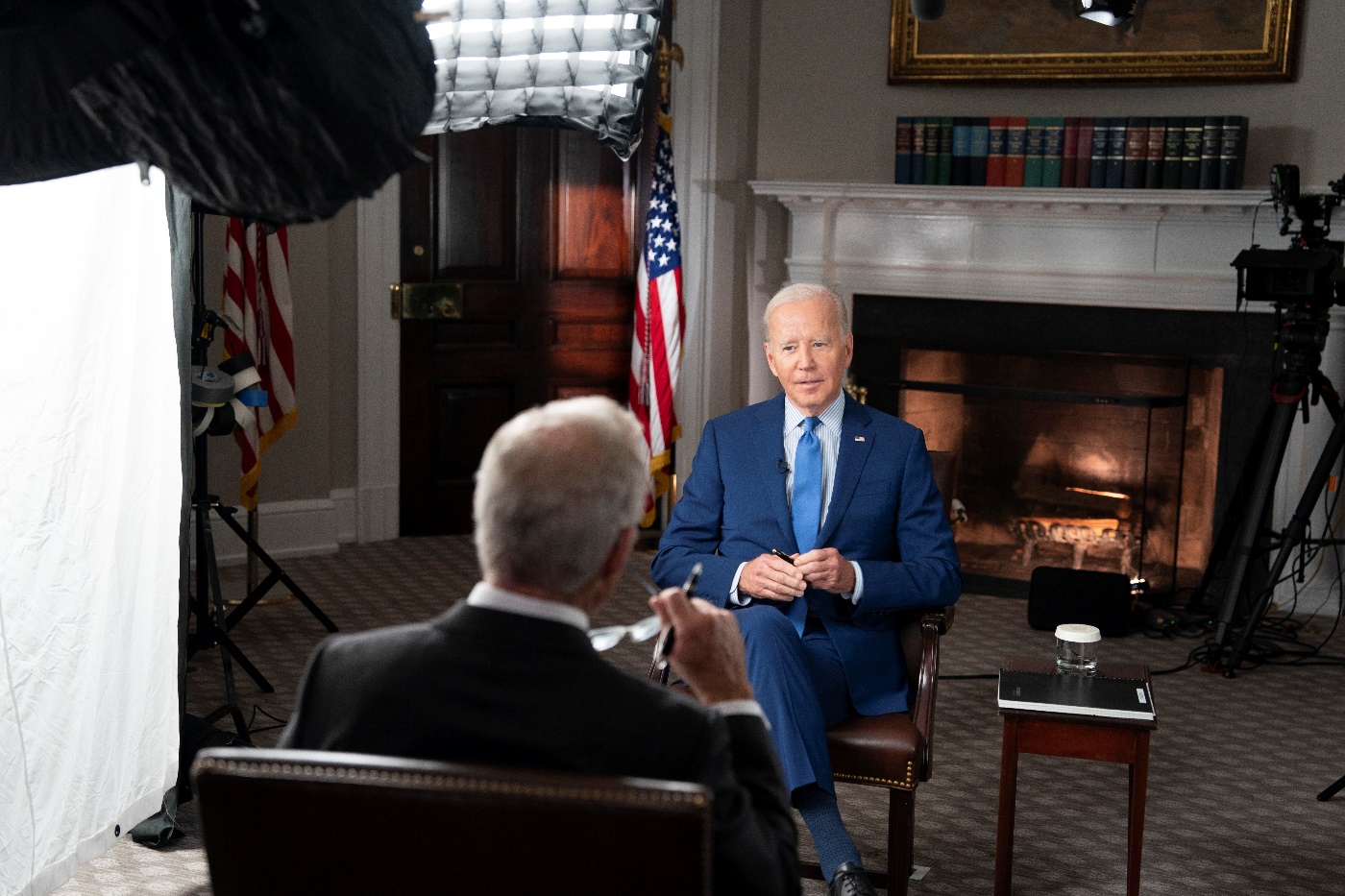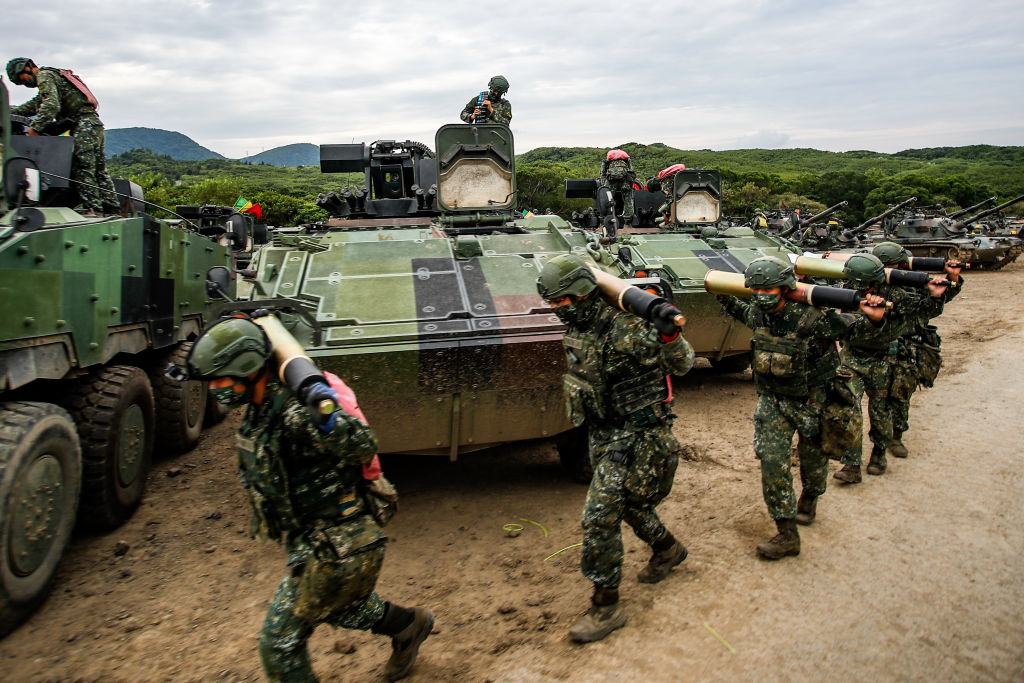
U.S. military forces would defend Taiwan if there was “an unprecedented attack,” President Joe Biden said, underscoring America’s commitment to the island as Chinese incursions mount near its shores.
Biden, speaking in a “60 Minutes” interview that aired Sunday, distanced himself from the question of whether Taiwan is or should be independent, but followed up with a pledge when asked by interviewer Scott Pelley if U.S. forces would “defend the island.”
“Yes, if in fact there was an unprecedented attack,” he replied, according to a transcript provided by the broadcaster. Still, he reiterated earlier in the interview that the U.S.’s “One China policy” had not changed.
Read more: President Biden’s Vow To Defend Taiwan Is Bold but Incredibly Risky
“We agree with what we signed onto a long time ago. And that there’s One China policy, and Taiwan makes their own judgments about their independence. We are not moving — we’re not encouraging their being independent,” he said. “That’s their decision.”
Biden has made similar statements before, spurring outrage in Beijing by adding new chapters to Washington’s longstanding policy of “strategic ambiguity” when it comes to Taiwan. In May, Biden said “yes” when asked if the U.S. was prepared to become “involved militarily” if it had to. “That’s the commitment we made,” he said then, before White House officials walked back his comments.

A U.S. official said on Sunday that Biden had made the same points before and stressed that U.S. policy has not changed. The official was responding to the “60 Minutes” interview on condition of anonymity.
Since Biden made his initial comments in May, tensions with China have flared after House Speaker Nancy Pelosi visited the island to signal support for its government and for democratic values. The White House sought to manage the potential fallout from the visit, which saw China renew its military exercises and missile launches in the Strait of Taiwan.
Read more: Pelosi Leaves Taiwan With the Island—and World—in a More Precarious Position
The U.S. announced another round of weapons sales to Taiwan this month, totaling over $1 billion. “We’ve been adamant about being committed to Taiwan’s self-defense and moving that forward,” National Security Council spokesman John Kirby said last week.
The Senate Foreign Relations Committee also approved a bill on Wednesday to boost ties with Taiwan and give it more military hardware to deter a Chinese invasion, though the final legislation will need to address White House objections if it has any chance of becoming law.
War in Ukraine
Biden reiterated U.S. financial commitments to Ukraine, saying the support will continue “as long as it takes.”
The U.S. has provided more than $15 billion of aid to President Volodymyr Zelenskiy, with Biden pledging $600 million in additional weaponry this month. The Ukrainian President on Sunday renewed his pledge to retake all Russian-controlled territory, after recent gains in Kharkiv and other regions.
Asked whether Ukraine is winning, Biden said it’s “not losing the war” though the carnage and destruction make it “hard to count that as winning.”
Read more: Inside the Historic Mission to Provide Aid and Arms to Ukraine
He warned President Vladimir Putin of a “consequential” response if Russia were to use chemical or tactical nuclear weapons in its war.
“It’ll be consequential,” Biden said. “They’ll become more of a pariah in the world than they ever have been. And depending on the extent of what they do will determine what response would occur.”
More Must-Reads From TIME
- The 100 Most Influential People of 2024
- The Revolution of Yulia Navalnaya
- 6 Compliments That Land Every Time
- What's the Deal With the Bitcoin Halving?
- If You're Dating Right Now , You're Brave: Column
- The AI That Could Heal a Divided Internet
- Fallout Is a Brilliant Model for the Future of Video Game Adaptations
- Want Weekly Recs on What to Watch, Read, and More? Sign Up for Worth Your Time
Contact us at letters@time.com